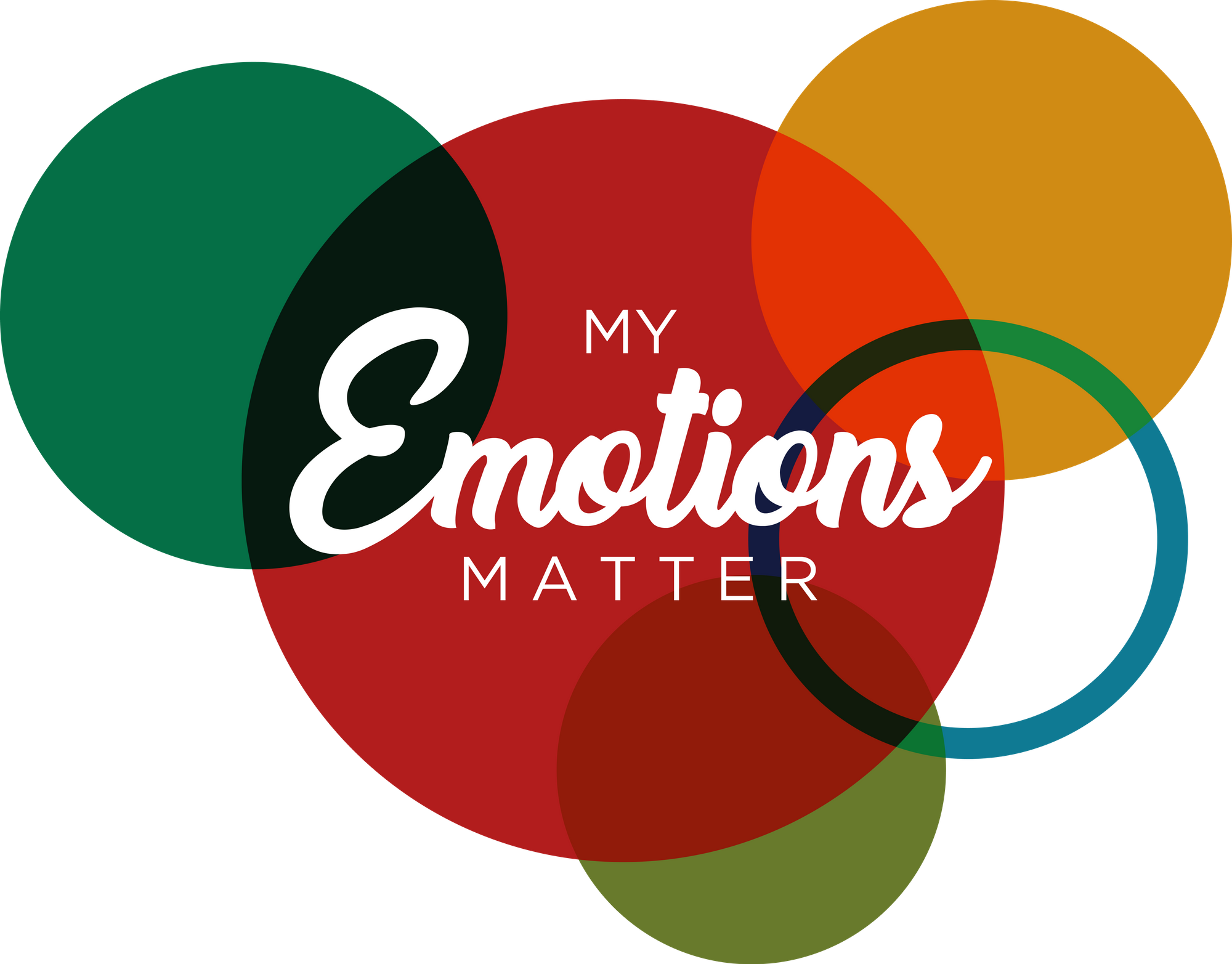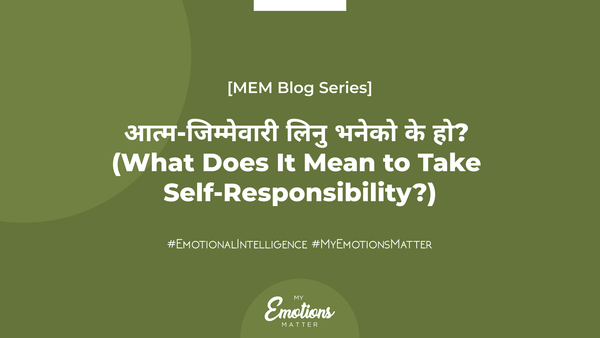Mindset: The Driver of our Behaviors
The lockdown gave me a lot of perspectives about life and how I live it. It provided me with extended space for reflection, which I am sure it did for many of us. A very essential realization that I’ve had is although we’d ideally opt to live drama-free lives, we somehow contribute to the very same problems in our lives, which create drama instead. I’ve found this to be especially true regarding home climate in the past few months. We tell our family members to remain calm and deal with things patiently whenever they go wrong, but it doesn’t even take us a minute sometimes to lash out at the very same people we advise about remaining mindful. Thought-provoking, isn’t it?
A lot of us might be thinking that the problem here is in behavior; if we changed our behavioral approach, things would automatically become better. Well, maybe, but are we missing out on the bigger picture here? As far as I’ve learned and experienced, it’s not the behavioral change that can help us change things for the better but something bigger. It’s what we call ‘mindset,’ as most of you might have guessed by now.
Let me illustrate this with an example. Until last year, when I had to travel in an overcrowded public convenience, I dreaded the process. Even before getting into the vehicle, I would think about how it would ruin my day. I thought, “I never signed up for this,” “I don’t have to go through this s**t again!” When these thoughts accompanied me on my commute, I would naturally get triggered because of the inconveniences that I had to go through thereafter. “Idiot, idiot, idiot!” that is what my inner voice would ask me to tell the driver who sped through the road to overtake another bus, to the co-driver who called out the people to get down at their bus stops in a shrill and loud voice, and to the passengers who pushed past me.
I used to be so triggered sometimes that even if I could help some people, I didn’t do so on purpose. Some people would sometimes enter with heavy backpacks, and although I would be seated occasionally, I would not take it from them. I used to start acting out of vengeance, “If they don’t take my bag when I hardly manage to stand properly, why should I do them a favor?” Having said that, it wasn’t all too bad all the time. I used to catch myself when I had such toxic thoughts from time to time. It always helped to remind myself that all the other passengers faced as much inconvenience as I did. Even the driver and the co-driver must deal with so many people throughout the day, so what was the point in perpetuating toxic thoughts and seeing the people around me as my enemies? (No one was.) Hence, I left seats for fellow passengers whenever I could endure standing. I would offer to hold a struggling passenger’s bag while I was seated. But, despite these, it was just so easy to slip and go down that negative spiral the very next day.
Mindset Drives Behavior
Now, if we look at the above example itself – although I tried to change my behavior, I could not bring sustained changes in my thought process and approach toward people. This happens because of a simple yet complex reason. It’s our mindset that drives behavior and not the other way around (The Arbinger Institute, 2016). Therefore, no matter how many times I tried to remain positive, I would always hate the commute because I never quite developed the mindset to do so. And, when I talk about mindset, we must acknowledge Martin Buber’s philosophical wisdom on the ways of being. Buber demonstrated that at all times, no matter what we’re doing or communicating, we are always in the world in an ‘I-It’ way or ‘I-Thou’ way (The Arbinger Institute, 2015). Based on Buber’s philosophy, ‘The Arbinger Institute’ developed the notion of two mindsets – Self-focused Mindset and Impact-focused Mindset (The Arbinger Institute, n.d.).
The Two Mindsets
With a Self-focused Mindset, we perpetuate the ‘I-It’ way of being. We see other people not as people but as objects – as obstacles to overcome, as vehicles to further our own goals and needs, or as irrelevancies to ignore. Unlike Self-focused, when we operate with an Impact-focused Mindset, we’re in the ‘I-Thou’ way of being. With an Impact-focused Mindset, we see people as people with needs, objectives, and challenges like ours. These two concepts might sound fundamentally similar to whatever we might have learned regarding mindset in our lives, but ever since I’ve learned about these two mindsets – I’ve been unable to un-think them.
Catching Yourself in the Box
It was when I learned about this concept, did it open me to seeing other people as people in the commute. Honestly, so many instances still disgusted me when things didn’t go a certain way and when I saw public transportation being mismanaged. However, what this concept has helped me with, is catching myself when I start becoming self-focused, much quickly. Whenever I’m triggered, it helps when I ask myself, ‘On a scale of 1 to 10, how self-focused I am right now?’ The higher the score, the more effort I try to put in to consider the ‘needs, objectives, and challenges’ of the individuals in relation to whom I am self-focused.
This understanding translated to how I was with my family members during the lockdown. We were unmistakably self-focused at home—sometimes over responsibilities, sometimes regarding time management, and sometimes we didn’t even need a reason to. I’m sure you can relate to this (or, at least, I’d like to believe so). Despite the challenges to remain impact-focused, what helped me was a simple self-reminder: “How can I not contribute to making things worse?”
Implications of an Impact-focused Mindset
I know what you guys must be thinking, does an impact-focused mindset mean stepping down and letting the other person have things his/her way? It certainly isn’t, but think about this. When two people are self-focused—both of them see each other as objects. Neither of them would listen to each other’s perspectives. Neither of them would be alive to the needs, objectives, and challenges of the other person. What would such patterns recurrently lead to? The answer is a perpetuated Self-focused Mindset that would ultimately sabotage the relationships.
It’s important that even if other people are self-focused, we take a step forward to understand what’s really troubling them instead of taking things personally. Of course, it’s easy to tell ourselves so, but if we think about it—most of the things people tell us aren’t because certain things are wrong with us. Self-focused expressions come from unmet needs, unfulfilled objectives, and unyielding challenges. If we can just open our eyes to spot these in the other person, the less we will be concerned about proving ourselves right, and the more we will worry about having peace in relationships.
Asking the Right Questions
When it comes to being conflicted between the two mindsets, The Arbinger Institute suggests that we ask ourselves the following three questions:
- Which version of myself is likely to have healthier relationships?
- Which version of myself is better able to respond to challenges and problems?
- Which version of myself would be more capable of accomplishing goals?
So, let’s try asking these questions to ourselves as often as we can so that we can create change within us rather than waiting on others to do so. As Byron Katie – an American speaker and author who teaches a method of self-inquiry known as “The Work of Byron Katie” or simply as “The Work,” says, “Placing the blame or judgment on someone else leaves you powerless to change your experience; taking responsibility for your beliefs and judgments gives you the power to change them.”
References
The Arbinger Institute. (2015). The anatomy of peace: Resolving the heart of conflict (2nd ed.). Berrett-Koehler Publishers.
The Arbinger Institute. (2016). The outward mindset: Seeing beyond ourselves (1st ed.). Berrett-Koehler Publishers, Inc.
The Arbinger Institute. (n.d.). What is an outward mindset? The Arbinger Institute. https://arbinger.com/blog/what-is-an-outward-mindset/




